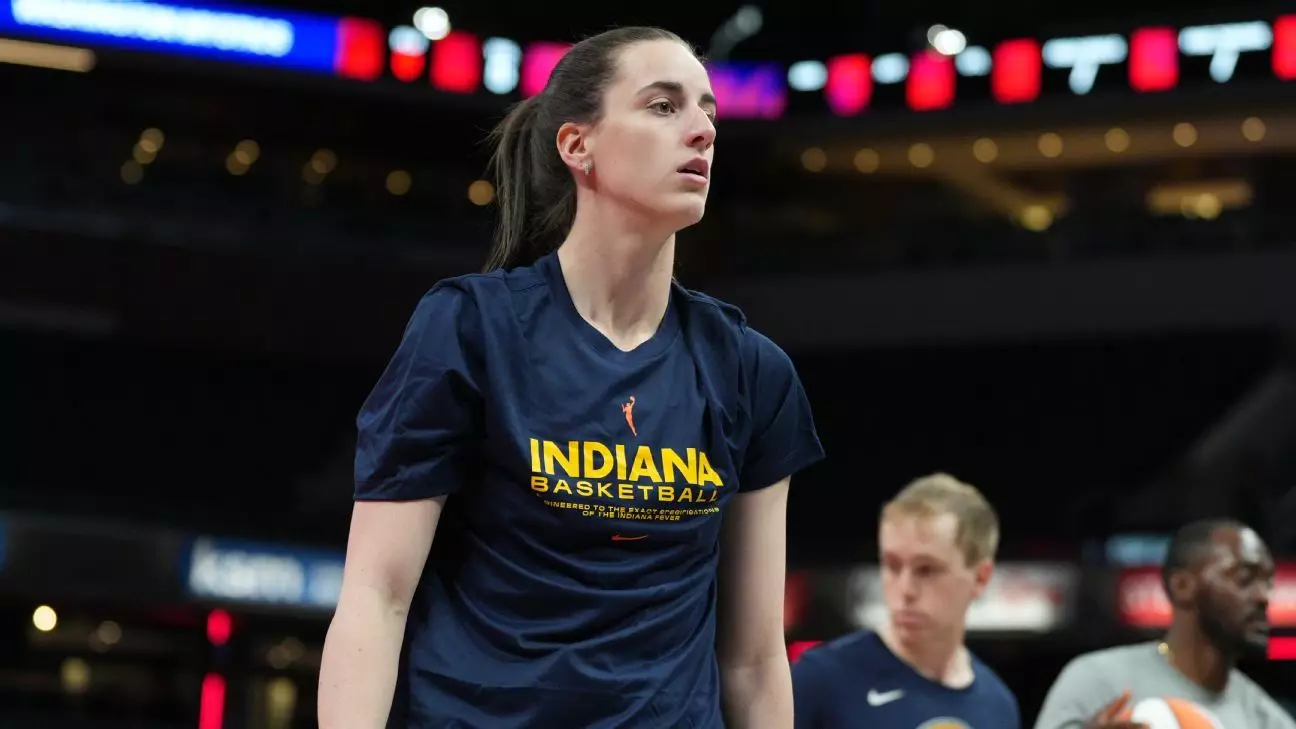For professional athletes, injuries present a daunting challenge. While athletes like Caitlin Clark, the Indiana Fever’s standout player, are bred for resilience, the reality of being sidelined forces an inevitable confrontation with vulnerability. A calf strain has rendered Clark inactive for three games, a harsh reality for someone who has thrived in the spotlight since her college days. Yet what some might view as a setback, Clark interprets as an opportunity for introspection and growth. Her withdrawal from the court shines a spotlight on a neural aspect of athleticism often overlooked: mental endurance amidst physical trials.
When Clark expressed determination not to rush back into play, her perspective reflects a maturity that defies the common pressure athletes face to perform at all costs. The competitive world of sports is riddled with narratives that glorify speed over caution, yet Clark’s decision underscores the value of patience in healing. “It’s just not worth it,” she remarked, showcasing a thoughtful approach that prioritizes long-term well-being over short-term gains.
Learning from the Sidelines
Injuries compel athletes to adopt a new role within their team dynamics. For Clark, this transition involves becoming a ‘connector’—a liaison between coaches and teammates during her time away from active play. Her self-awareness during this period calls to mind the notion that learning extends beyond physical practice. Clark’s revelation that she learns just as much by observing from the sidelines resonates within a broader philosophy of sports: sometimes the most profound lessons lie in passive participation.
As she shares the bench with coaching staff, absorbing their strategies and insights, Clark transforms her injury into a pedagogical experience. It highlights a crucial point that transcends athletics; perspective is an invaluable teacher. By sitting out, she gains insights into game flow and tactics that could redefine her approach to the sport once she returns. This situational awareness nurtures not only her growth but enriches her teammates’ coalescence on the court.
The Role of Resilience
Resilience is often romanticized in sports narratives yet witnessing Clark’s journey elucidates the struggle. The Indiana Fever’s recent performance, yielding a mixed record in her absence, illustrates the challenges that accompany a key player’s absence. Clark’s assertion that her team must allow themselves “grace” is a powerful reminder that the dynamics of teamwork are delicate, especially amid adversity.
In her absence, players have had to adapt to unprecedented roles, revealing the multifaceted nature of teamwork. Herein lies a profound lesson in resilience—not merely in overcoming personal struggle, but in the collective adaptability of a group facing unforeseen challenges. This community response to adversity fosters stronger bonds and deeper trust among teammates, enhancing the team’s character.
Impact and Relevance
As Caitlin Clark navigates this injury, her experience resonates far beyond the confines of basketball. The mental fortitude she exhibits is applicable to numerous facets of life, illustrating the importance of patience and perspective in any journey. In a society that often pressures individuals to bounce back quickly from setbacks—both physical and emotional—Clark’s measured approach is refreshingly countercultural.
Moreover, her acknowledgment of her growth as a person, not just a player, highlights an essential truth: sports are about more than competition and accolades; they are arenas for personal development. As athletes rise to face the scrutiny of performance, they simultaneously strive to cultivate their identities and values. Thus, Clark’s current adversity has the potential to enrich her character significantly, aligning her journey with the principles of centered liberalism, which champions individual growth alongside communal responsibility.
Her thoughts on the importance of fostering a positive outlook in the face of challenges can inspire others confronting their hurdles. Just as she advocates for understanding and adaptability, society must also recognize that resilience is neither a quick fix nor a linear path, but rather a winding journey fraught with invaluable lessons.
In summation, Caitlin Clark’s journey through injury offers an inspiring narrative of personal evolution amidst adversity. It is this unbreakable spirit, along with her commitment to growth and team unity, that will ultimately define her legacy—not just as a player, but as an influential voice in the broader discourse of mental resilience in sports.


Leave a Reply